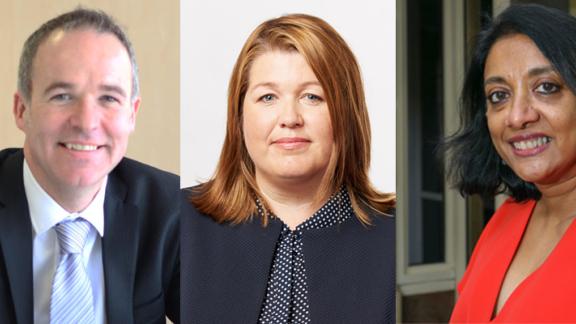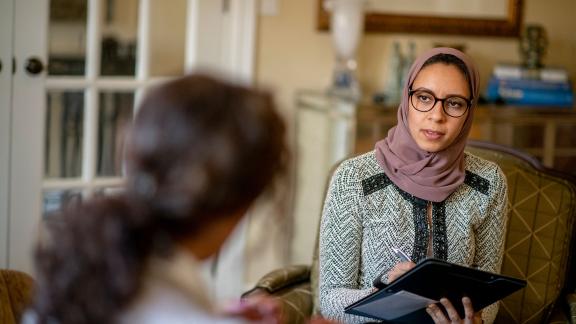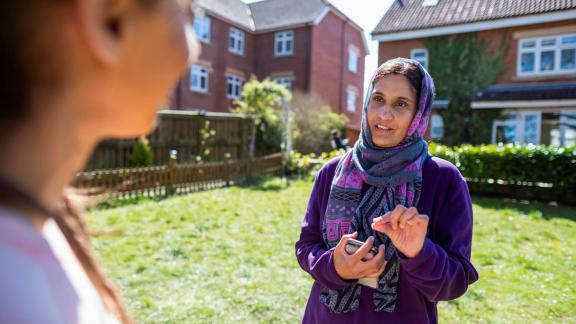Equality, diversity and inclusion at a time of crisis and beyond

Sam Allen, Dr Navina Evans and Rob Webster, respectively chief executives at Sussex Partnership, East London and South West Yorkshire Partnership NHS foundation trusts, discuss the now and the future of equality, diversity and inclusion within the NHS.
The moral case for equality, diversity and inclusion is clear. In recent times, many have come to understand that diversity of thought brings benefits when faced with unprecedented challenges. The disproportionate deaths of BAME health and care staff during the coronavirus pandemic brings both into sharp relief and calls for immediate action.
This action needs to recognise that the evidence and data of what is happening sits alongside a wave of fear and concern that is palpable among staff and our local communities. It was therefore positive to hear NHS England and NHS Improvement and Public Health England will head up an inquiry examining the impact of COVID-19 on the BAME community.
When working under pressure, our values and leadership are tested – the actions we take now will be judged in years to come. History has taught us this lesson. In recent times, as a system we have come up short. Progress on BAME representation and leadership reversed in the run up to and after the implementation of the 2012 Health and Care Act. Roger Klein’s seminal research into discrimination in NHS leadership and the impact on patients – his Snowy White Peaks paper – showed everyone what was happening, if hidden in plain sight. When things get difficult, diversity and inclusion can go out of the window.
We are determined that things should be different this time. In our capacity as NHS chief executives, we have been aiding NHS England and NHS Improvement to consider steps that can be taken through our response to COVID-19 to address BAME representation in decision making. One value we are all united on is that inclusion is not optional – it needs to run through all that we do as leaders and even more so in times of a national crisis.
History has also shown us that in seeking and speaking the truth we can accelerate our path to equality. This can be as liberating as it is painful, as it requires each of us to take an honest look at how we do things. No doubt part of the learning here will be about the culture, structures and processes that run through the NHS.
United front
We know all chief executives across the NHS are united in their unrelenting focus on the safety and wellbeing of patients, staff and communities. This is not something the NHS can go at alone if we are to engage with our communities both seeking to understand this better and in the co-production of actions we can take. Working alongside and in partnership with local government is vital when taking a community-based approach to this.
For the national inquiry, we know it will take time to interrogate the data, seek evidence and this in many ways will be retrospective in its review to support (hopefully) a better future for all. Time isn't something we have on our side right now and as leaders we need to take positive steps to safeguard our colleagues and communities. And in doing so, we need to be honest that the structures and processes that exist right now are not working, and that inclusion in some things we do still is and feels excluded. If we get this right, we have a real opportunity to improve the WRES and WDES outcomes and create a more personal and diverse NHS for all.
Call to action
Our collective call for action is for all NHS chief executives (or boards) to do the following to ensure BAME representation in decision making. We include ourselves in needing to take these actions because we have more to do. We also know if you change the people in the conversation, you change the conversation. As chief executives, we all should:
- Continue to collect and use our WRES and WDES data to reiterate and amplify the case for diversity in decision making at every level of our organisations.
- Complete and publish an equality and human rights assessment (EHRIA) on our command structures - ensuring we have diversity of representation and thought in decision making and the actions we are taking.
- Speak out with our chairs on the issue and identify a non-executive to lead scrutiny and assurance of the steps above, informed by our staff networks
- Engage our local partners, such as health and wellbeing boards/healthwatch and community groups, to support community engagement and public accountability for our actions as health and care systems.
And as we all do this, we must remind everyone it is alright to be anxious or scared. We must listen to the fears of staff and communities and find ways of making decisions that ease their worries, together. Who knows, we may even be able to accelerate the diversity of leadership at all levels in the NHS.
Sam Allen is chief executive at Sussex Partnership NHS Foundation Trust and chair of the Health & Care Women Leaders Network. Follow her on Twitter @Samanthallen
Dr Navina Evans is chief executive of East London NHS Foundation Trust. Follow her on Twitter @NavinaEvans
Rob Webster is chief executive of South West Yorkshire Partnership NHS Foundation Trust and lead chief executive West Yorkshire and Harrogate ICS. Follow him on Twitter @NHS_RobW



